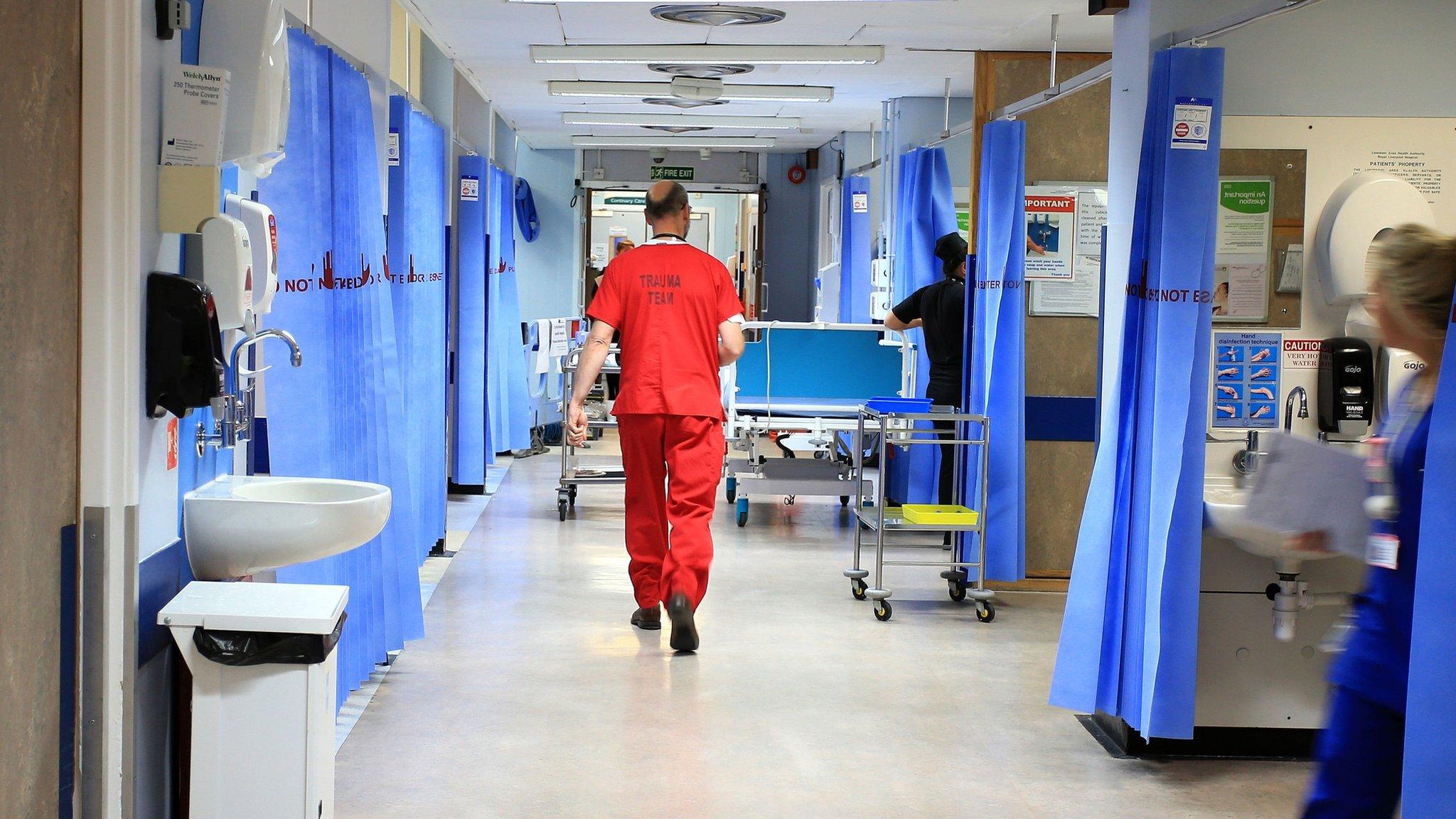NHS funding and rationing: The debate intensifies
- Published
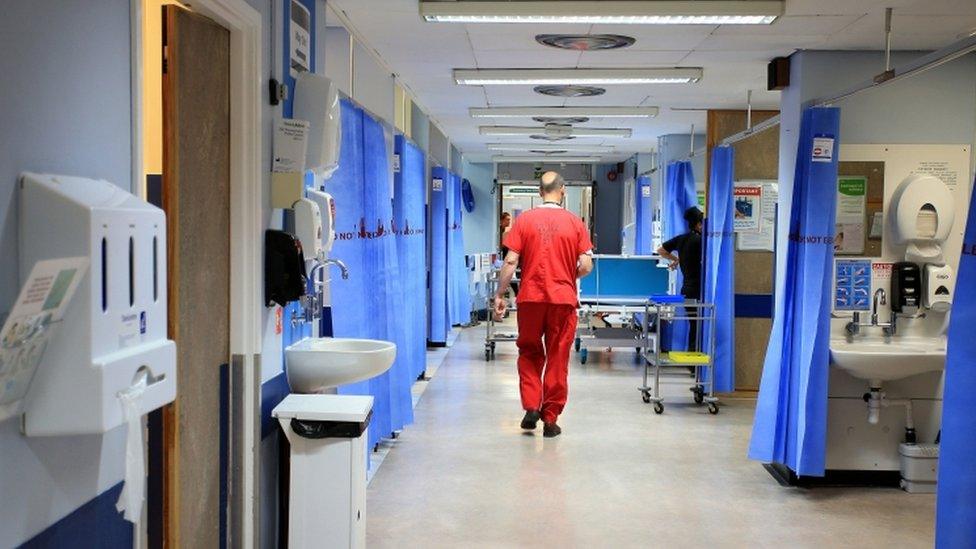
It is becoming as familiar as Halloween or 5 November fireworks - a crescendo of demands for more money for the NHS ahead of the Autumn Statement. So is it any different this time and are the financial pressures more intense than before?
In 2014, ahead of the general election, George Osborne, then Chancellor of the Exchequer, conjured up an extra £1.9bn for the NHS in England for 2015-16, after warnings there had been an unbridgeable gap in the finances.
Under the usual funding formula, this became £2.2bn across the UK, on the assumption the devolved administrations spent their allocations on health.
This was unveiled with a hospital photo opportunity involving Mr Osborne, Simon Stevens, of NHS England, and the Health Secretary Jeremy Hunt and was widely welcomed by health commentators and think tanks.
The election came and went, and it was not long into the 2015-16 financial year before hospital trust bosses were warning of mounting deficits and the sums not adding up.
Fast forward to the autumn of 2015, and Mr Osborne was publishing his Spending Review for the years up to 2020.
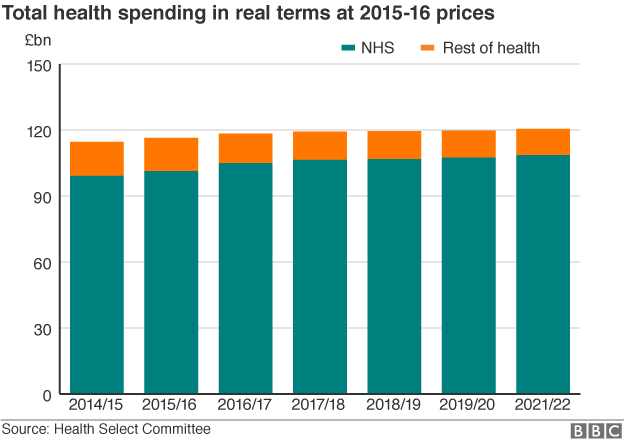
Once again, a photo opportunity of the chancellor in a medical setting, this time in a GP surgery, was designed to underline the government's commitment to health service funding.
The 2015 Spending Review allocated £3.8bn above inflation to the NHS in England in 2016-17 - and annual increases beyond that, to reach £8.4bn in 2020.
Once again, this was a cue for applause from the health world, with experts noting there was a significant increase in the first year of the settlement.
A year on, however, and there are renewed warnings about the dire state of NHS finances.
Another Autumn Statement is approaching, with the Chancellor, now Philip Hammond, facing calls for pump-priming of the health service and social care.
Conservative MP Sarah Wollaston, who chairs the Health Select Committee, has added to his postbag with a strongly worded plea for intervention.
Some of the committee's demands are not new.
It rejects the government's claim that it has promised an extra £10bn to the NHS.
Ministers say this extra funding covers 2014-15 to 2020-21, but the committee argues the Spending Review period began a year later.
The MPs also point out that the sum in question relates to NHS England and once cuts in other areas of health spending are accounted for, the overall increase is more like £4.5bn.
The tone of the cross-party letter is unmistakeable.
It says that what looked like a significant increase in funding this year in England now looks rather less significant and warns that short-term pressures may become "overwhelming".
It argues that "per capita funding" (that is spending per head of population) will actually fall in 2018-19.
The letter is challenging the government's claim to be giving the NHS what it wants, following Mr Stevens's suggestion that he did not get all the financing he had asked for.
The government is sticking to its line that cash injections and pledges from 2014-15 onwards will add up to £10bn in real terms for the NHS in England.
There is a view in Whitehall that when the money was promised, over the past two years nobody, at NHS England was arguing that it did not go far enough.
The road ahead looks bumpy.
NHS England is committed to finding up to £22bn of annual efficiency savings by 2020.
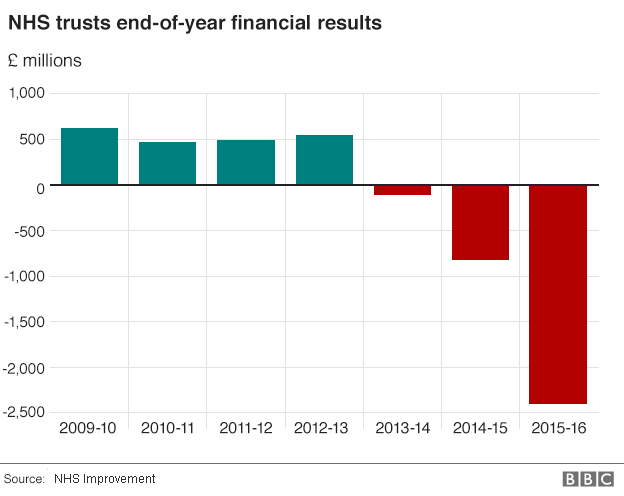
Across 44 areas of England local health and social care, leaders have been told to come up with sustainability and transformation plans (STPs), to make better use of resources and redesign services.
A poll of local commissioning groups by Health Service Journal has shone some light on the process.
Of those that responded (just under 50%), nearly half had plans to reduce hospital beds and a third intended to close or downgrade accident and emergency departments as part of their STP.
The underlying problem is the same as it always has been.
The NHS has a finite level of resources allocated by governments but has to cope with unlimited demand.
What looks like a good settlement the year before can seem more like a sticking plaster solution as the cash gets swallowed up in the face of unpredictable increases in patient numbers.
The money will be tight across the board in this Autumn Statement.
The chancellor and the prime minister may decide to leave the NHS to make better use of the above inflation increases already awarded.
But in doing so they may have to face damaging headlines as the NHS struggles to cope through this winter.
- Published31 October 2016
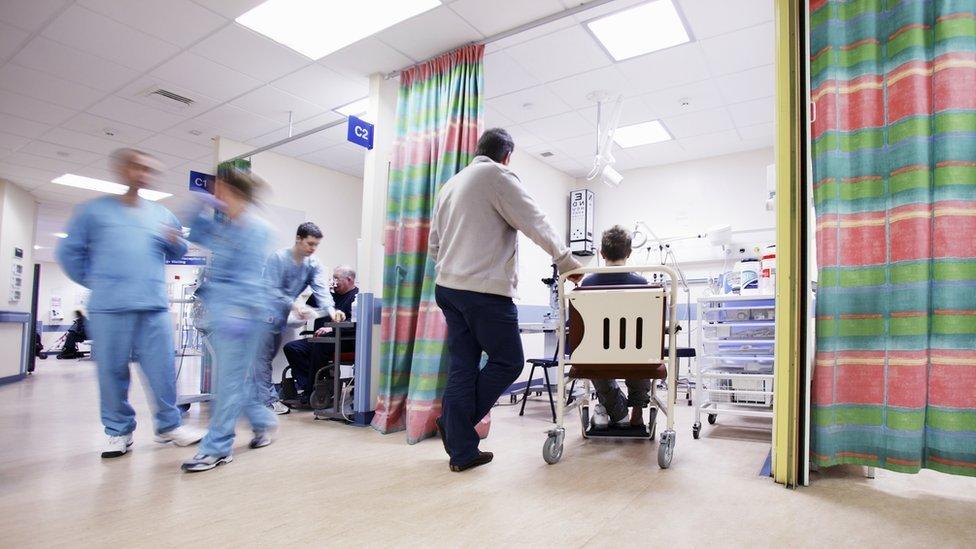
- Published20 October 2016
- Published21 July 2016

- Published19 July 2016

- Published11 July 2016
